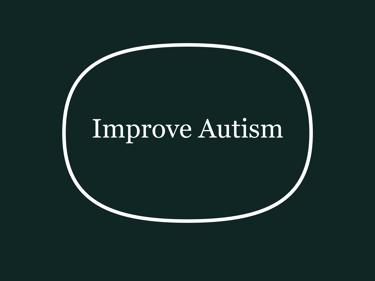Impact of probiotic supplements on behavioural and gastrointestinal symptoms in children with autism spectrum disorder: A randomised controlled trial
Authors:
doi: 10.1136/bmjpo-2024-003045
Overall Findings
The study investigated whether probiotic supplementation could improve behavioral and gastrointestinal (GI) symptoms in children with ASD over a 3-month period. A total of 180 children were evenly split into a probiotic group (n=90) and a placebo group (n=90), with all participants completing the study. Behavioral symptoms were assessed using the Social Responsiveness Scale-2 (SRS-2) and the Aberrant Behaviour Checklist-2 (ABC-2), while GI symptoms were measured with the Gastrointestinal Severity Index (GSI).
The results showed that children in the probiotic group experienced significant improvements in both behavioral and GI symptoms compared to the placebo group. Specifically:
Behavioral Improvements: The probiotic group had a greater reduction in SRS-2 total T scores (6.10 units vs. 3.10 units in the placebo group, p=0.010) and a 47.77% reduction in severe behavioral symptoms (vs. 23.33% in the placebo group, p=0.000).
GI Improvements: Significant reductions were noted in constipation (p=0.003) and diarrhea (p=0.043), alongside improvements in stool consistency, smell, flatulence, and abdominal pain.
Correlation: A significant correlation was found between behavioral and GI symptoms, suggesting that gut health improvements may influence behavior.
Safety: No adverse events were reported, indicating the intervention was well-tolerated.
What Probiotics Were Given and How?
Probiotic Used: The children received a patented probiotic supplement manufactured by Nutri Newron Pediatrix (patent number: 489143). It contained 12 probiotic strains with a total of 9 billion colony-forming units (CFUs) per 5-gram sachet. The specific strains were not listed in the study, but it was a multi-strain formulation designed for pediatric use.
Administration: Participants took one 5g sachet reconstituted in 50 mL of lukewarm milk or water, twice daily (morning and evening) for 3 months. The placebo group received an identical sachet without probiotics, following the same protocol.
What Symptoms of Autism Were Improved, If There Were Improvements?
Yes, there were significant improvements in both behavioral and GI symptoms in the probiotic group. Here’s a breakdown:
Behavioral Symptoms Improved
Social Withdrawal/Lethargy: Reduced severe symptoms by 40% (from 57.78% to 17.78% of children, p=0.000).
Stereotypic Behavior: Reduced severe symptoms by 37.77% (from 58.89% to 21.11%, p=0.000).
Hyperactivity: Reduced severe symptoms by 34.44% (from 65.56% to 31.11%, p=0.000).
Inappropriate Speech: Reduced severe symptoms by 32.22% (from 55.56% to 23.33%, p=0.000).
Overall Behavioral Severity: A 26.66% reduction in severe symptoms and a 36.66% increase in mild symptoms were observed, indicating a shift toward less severe behavioral issues.
Note: Irritability showed no significant improvement in either group.
Gastrointestinal Symptoms Improved
Constipation: Significant improvement (p=0.003), with more children achieving >5 stools/week (63.33% post-intervention vs. 42.22% at baseline).
Diarrhea: Significant improvement (p=0.043), with fewer children experiencing frequent loose stools.
Stool Consistency: Improved with a 6.66% reduction in watery stools and an 18.88% increase in formed stools (p=0.009).
Stool Smell: Improved by 25.55% (p=0.001), with more children having normal-smelling stools.
Flatulence: Reduced daily flatulence by 22.22% (p=0.000).
Abdominal Pain: Reduced mild discomfort by 10% and eliminated moderate-to-severe pain entirely (p=0.001).
Overall GI Severity (GSI Score): Improved by 27.77%, with fewer children scoring ≥6 (indicating severe GI symptoms) post-intervention.
Conclusion
The study demonstrates that a 3-month regimen of a patented probiotic supplement (12 strains, 9 billion CFUs per 5g sachet, twice daily) significantly improved behavioral symptoms (e.g., social withdrawal, stereotypic behavior, hyperactivity, inappropriate speech) and GI symptoms (e.g., constipation, diarrhea, stool consistency) in children with ASD. These benefits were observed after 3 months, with no adverse effects, highlighting probiotics as a promising, safe complement to conventional ASD therapies. However, limitations such as the short duration, strain specificity, and potential dietary confounders suggest caution and the need for longer-term, broader studies to solidify these findings.
https://pubmed.ncbi.nlm.nih.gov/40037934/
doi: 10.1136/bmjpo-2024-003045


